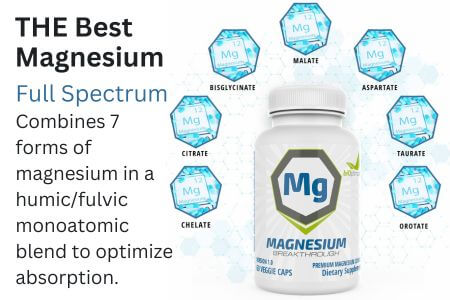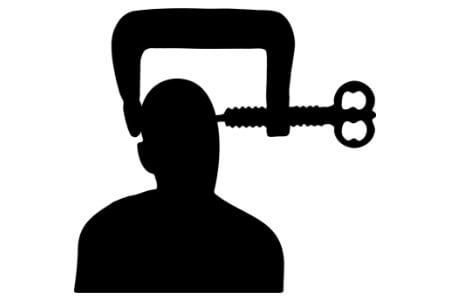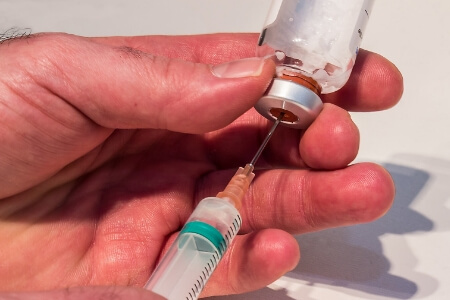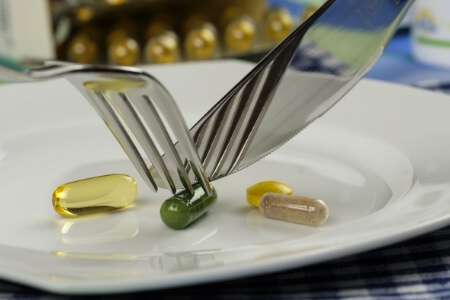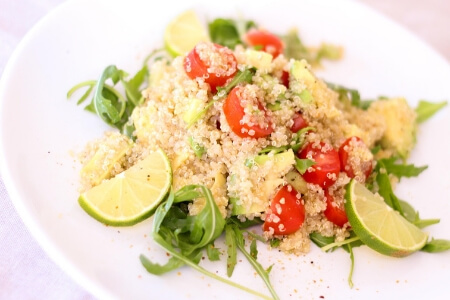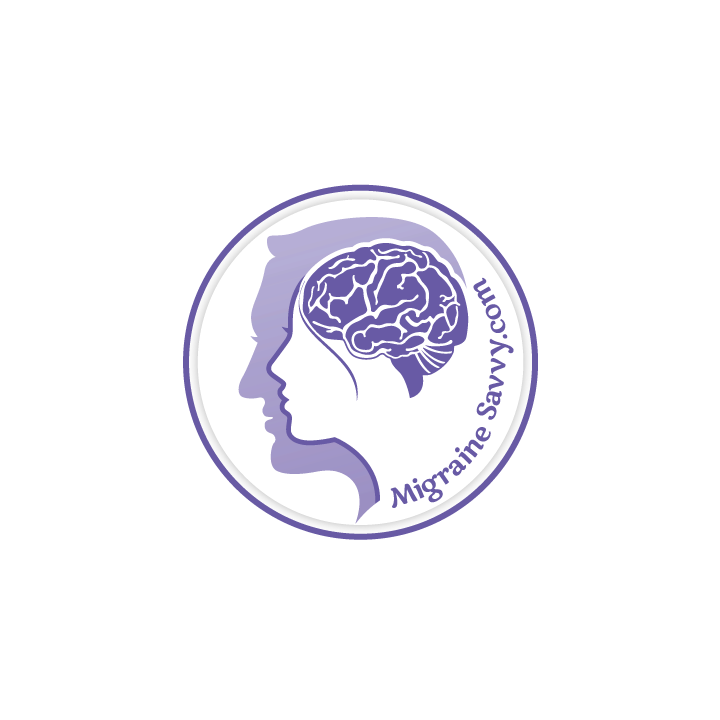- Home
- Prevention Strategies
- Migraine Supplements
Migraine Supplements: How To Know What Works
How will you know which migraine supplements are right for you? Silly question right! You'll know when you stop getting migraine attacks!
Feverfew and Butterbur are well known for reducing migraine attacks and for prevention. But they never worked for me, and if they didn't work for me, they might not work for you... or maybe they will. It can get confusing because studies have conflicting results. And we are all SO different, but if you are deficient, they could work miracles. Let's hope for that.
Let's take a look at those two, Coenzyme Q10, Magnesium, Vit B2, Vit B12... and a few others that might help you find more relief from relentless attacks.

Many young adults, children, and teenagers that have migraines also appear to have mild deficiencies in Vitamin B2 (riboflavin), vitamin D, and coenzyme Q10 - "a vitamin-like substance found in every cell of the body that is used to produce energy for cell growth and maintenance." [1]
There is a recent study that also shows inconclusive evidence for migraine prevention using supplementation.
But don't let this stop you...
I just tried something unrelated to my migraines and it reduced my time spent writhing in pain from 16 to 9 days per month in just 6 weeks. It was a complete surprise.
Before we get to that, let me tell you about feverfew that has some good research behind it, and works for many individuals who suffer from headaches and migraines.
Let's Talk Effective Migraine Supplements!
Feverfew Has Been Used For Decades
Feverfew is one of the more well known migraine supplements. It has been found to be effective in preventing migraine headaches and/or reducing the nausea and vomiting associated with migraines. It is the most widely used supplement for natural and effective pain relief.
The respected British journal, Lancet, reported way back in 1988, that extracts of Feverfew inhibited the release of two inflammatory substances, serotonin and prostaglandin, and found it useful for pain reduction in headaches.
The parthenolide in Feverfew appears to block platelets and inhibit the production of serotonin, a brain chemical involved in the release of pain-causing chemicals.
Sadly I had an allergic to reaction to feverfew in all three kinds I tried. Leaves, tincture and capsules. No migraine supplements have helped me abort an attack, but there are a few I choose to take to maintain my health and well-being.
Dr. Weil, whom I trust and have followed for years now, suggests trying: caffeine if you don't already drink it, eliminating artificial sweeteners (like NutraSweet and Equal), Butterbur, Feverfew, Co-enzyme Q10, and Vitamin B2 for migraine prevention.
He says to take 100-150 mgs daily of feverfew "standardized to contain at least 0.2 percent parthenolides. This herb helps prevent the release of substances that dilate blood vessels in the head. You can stay on it indefinitely."
Click here to see the brand I recommend.
My #1 Choice in Magnesium Supplementation
What About Butterbur For Migraine Prevention?
Butterbur also has some good results from clinical studies.
Experiment with this herb as a preventative too.
You may have to take it daily for 6 - 8 weeks before seeing results.
The recommended adult dose is from 50 - 100 mgs twice a day with meals.
Side effects are rare.
I have the exact details for dosing on my Top 6 supplements for migraines post. I took it for 18 months but did not notice enough improvement to continue with the added costs. Plus I found a triptan I could take to effectively abort attacks.
Here are brands I recommend:
Here Are My Top 3 Recommendations:
As an Amazon Associate, I earn from qualifying purchases - affiliate-disclosure.
- New Chapter Ginger Supplement - Ginger Force with Organic Ginger – Organic and highly effective.
- Butterbur (Enzymatic Therapy Petadolex) – A natural option for prevention.
- Feverfew (White Willow) – Known for reducing migraine frequency.
Feverfew and Butterbur should be tried separately - they are not to be taken together.
But check with your naturopath, nutritionist or health care professional, they may have some more ideas on this regime for you. Everyone is so different.
The aim is to relieve the severe pain and symptoms associated with migraine headaches and promote improvement in blood circulation to the brain by dilating the already constricted blood vessels that can trigger and aggravate the migraines. Feverfew is know to do this, as is cayenne pepper.
Feverfew is one of the top migraine supplements recommended along with Butterbur and magnesium. But I also want to tell you about what I just started taking for CFS/ME.
My migraine days have reduced from 16 last month to 9 this month. Cause for celebration? Yes... it really is. Sublingual B12 has changed my life. The oil wasn't strong enough but it made a difference right at the start.
Reduced migraine days from 16 down to 9 a month in 6 weeks, just by taking... drum roll please...
Vitamin B12
If you have any of these symptoms, and these are just a few, then you might want to look into this yourself: Ataxia (poor muscle coordination), confusion, depression, ADHD, fatigue, brain fog, decreased libido, Paresthesia (tingling of fingers, toes, arms, legs, etc.), insomnia, or trouble sleeping through the night, food intolerance - particularly to sulphites, bowel or bladder problems, and inability to lose weight.
Here are some good links if you want more details B12Oils.com and Vitamin B12 Deficiency. Click here for the PDF to download.
It's Important to Correct Your Magnesium Deficiency
Studies show that migraine sufferers are often low in Magnesium.
It is the second most abundant mineral in our human cells and under normal circumstances our needs can be met with food intake.
Foods high in magnesium include: dark leafy greens, nuts, seeds, fish, beans (soy beans, black beans, kidney beans, white beans, chickpeas, black-eyed peas and lentils), whole grains, avocados, yogurt, bananas, dried fruit, and dark chocolate, just to name a few.
The current recommended daily value (DV) for magnesium is 400mgs. My neurologist said 300mgs twice a day would be better, if you can tolerate it.
Magnesium helps the body regulate hundreds of enzymes in your body and plays an essential part in organizing vital bodily functions such as electrical impulses and muscle control.
I am referring to the "electrical storms" our migraine brains have before and during an attack. It can potentially calm them down.
Magnesium helps the body with detoxing and increases your energy production. It is absolutely vital to your well-being.
The dose can vary depending on your own individual need. I used to get magnesium by injection because I was so deficient but, even then, my migraines persisted. No. Change. At. All.
This does not mean there is no point in experimenting, it could reduce your attacks significantly.
My #1 Choice in Magnesium Supplementation
Invest In Good Quality Migraine Supplements
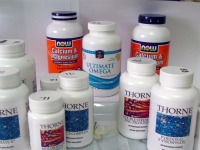 My Migraine Prevention Strategy
My Migraine Prevention StrategyLook for quality ingredients. This is just so important, you will hear me saying it again and again. My very expensive doctor uses mostly Thorne brand which I get from either iherb.com or Amazon, depending who is cheaper.
I spend so much money on migraine supplements, it would be silly to get ones that just don't work due to poor quality and processing.
If you decide on iherb - use my code HAZ215 to get a discount on your first order. These are the migraine supplements I would say to try first (along with additional magnesium):
Migra-Eeze Standardized Butterbur-Ginger-Riboflavin Formula 60 gels
This is the one my doctor recommended I trial first. I took it for 18 months. It reduced the severity but not the frequency or duration. Luckily I found a triptan that worked better.
In clinical trials in both Germany and the United States butterbur reduced the incidence of headache pain by up to 61%. Butterbur's principal active constituent Petasin reduces smooth muscle spasms and helps relax the constriction of cerebral blood vessels.
Migra-Eeze contains butterbur root extract standardized to provide 22.5 mg of petasins with each daily dose of two soft-gels.
Riboflavin (vitamin B2) and ginger are included based on the
ability of these nutrients to exert functional changes that may also
guard against headache and migraine. You can also get this on Amazon.
How To Figure Out What Works When Studies Have Conflicting Results?
It's already been proven that many migraine sufferers also have vitamin deficiency. Cincinnati Children's Hospital Medical Center did a study to see whether supplementation would actually help prevent their participants migraines.[1] This is what Dr. Hagler found:
"She found that girls and young woman were more likely than boys and young men to have coenzyme Q10 deficiencies at baseline. Boys and young men were more likely to have vitamin D deficiency. It was unclear whether there were folate deficiencies.
Patients with chronic migraines were more likely to have coenzyme Q10 and riboflavin deficiencies than those with episodic migraines.
Previous studies have indicated that certain vitamins and vitamin deficiencies may be important in the migraine process. Studies using vitamins to prevent migraines, however, have had conflicting success."
Try these first: Co-enzyme Q10, Vitamin D, Folate (?), Riboflavin (B2), Magnesium, and B12.
So I can only recommend that if you are deficient in a particular vitamin to supplement it, and then monitor your migraine attacks closely. The important thing is to get tested by your doctor first before spending a million dollars on useless migraine supplements. Make sure you stick to the evidence based ones and use quality products.
Direct Links To High Quality Migraine Supplements
Here are links to the top quality supplements for deficiencies found in this study:

Ready to take the next step?
Choose the next step that fits where you are right now.
MIGRAINE PREVENTION Related Articles
Migraine Supplements Reference:
1. Cincinnati Children's Hospital Medical Center. (2016, June 10). Many with migraines have vitamin deficiencies, says study: Researchers uncertain whether supplementation would help prevent migraines. ScienceDaily. Retrieved January 3, 2018 from www.sciencedaily.com/releases/2016/06/160610140645.htm

